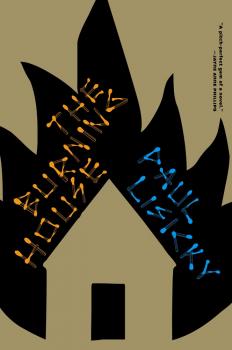ТОП просматриваемых книг сайта:
Современная зарубежная литература
Различные книги в жанре Современная зарубежная литература, доступные для чтения и скачиванияАннотация
•In the Cemetery of the Orange Trees provides a fresh look on a misunderstood people, and a different perspective on Israel and the Palestinian diaspora. •This is the first novel set in Gaza on the Palestinian-Israeli conflict written by an English speaking writer.•It is about an American who discovers himself as a person in the middle of a refugee camp where animals can talk and dream. •On his second trip to Gaza in 1993, he saw two Palestinian boys playing with an injured bird with a string around its neck. The boys would toss the bird into the air and the bird would fly a few feet before the string ran out and the bird would fall into the boy’s hands. When he saw this, the idea that this story would be much better served told as fiction rather than journalism came to him. For nearly a year, the author carried this image of the bird on the string with him and then one day he wrote a short story about a bird on a string and it was his first published piece of fiction. This haunting experience was the impetus for turning Talarigo away from journalism into fiction.
Аннотация
The Doctor was looking for the blueprint. Drawer after drawer he lumbered his way around the office, a map of the ribcage in his head. Last night he’d dreamed the wings again and the dream gave him an idea. More of the rib, dismantled, would make the wing frame more flexible.In The Arsonist’s Song Has Nothing to Do with Fire, Vivian Foster connects with an arsonist and a radical plastic surgeon whose mission is to build human wings.Allison Titus is the author of a book of poems, Sum of Every Lost Ship, and the recipient of a fellowship from the NEA. This is her first novel..
Аннотация
Our first excursion was to the Bronx Zoo. The Photographer wanted to shoot me holding a python. The snakemaster wrapped the thickest, blackest one around my shoulders. An employee of the zoo offered to take a picture of the python and me with the Photographer, referring to me as the Photographer's daughter. At that moment the snake picked up its head and began to slither towards my face. I did not scream. I pleaded with the snakemaster to take the python off me. After the snake was in its tank, I washed my hands with a special soap. One wash was not enough. He let me wash as many times as I wanted. . . . There is fear in my eyes. I see the fear clearly even in the blurred snapshot. The adults waiting in line with their children must have seen it too. Fear like I have seen in my sister's eyes. Quick Kills chronicles the desperate longing to belong as well as the effect of neglect, familial absence, and the nature of secrets. The young female narrator is seduced by an older man who convinces her that she is the perfect subject for his photographs. Meanwhile, the narrator's sister embarks on an equally precarious journey. Never clearly delineating the border between art and pornography, the narrator's escalating disquiet is evidence that lines have been crossed. Lynn Lurie is an attorney with an MA in International Affairs and a MFA in writing. Quick Kills is her second novel.
Аннотация
Paul Lisicky is well-known and well-connected in the literary and academic worlds. (Husband is Mark Doty.) Extensive reading tour planned, with 30-40 stops at bookstores, book festivals, writers' conferences, and universities. (Author did more than 20 readings on his own in 2010, with no new book since 2006.) Author is an active social networker, with over 4000 Facebook friends and Twitter followers, as well as a popular blog and web site. Burning House already has stellar blurbs, from Jayne Anne Philips, Nick Flynn, Robert Olen Butler Media and booksellers will be invited to book parties in New York, the Hamptons, and Provincetown Author has two previous books (novel and memoir) published with Graywolf, that were well reviewed and widely publicized. Subject matter of Burning House has widest appeal of any of the author's works: a family saga comparable to Michael Cunningham's Flesh and Blood Timely non-fiction hook: A close-knit family and community torn apart by battles over community development and gentrification, in a recession-plagued exurban environment seldom depicted in fiction. Both witty and profound, the narrative presents a dynamic interior monologue: One man struggles to do right as his family and community begin to come apart.
Аннотация
Аннотация
Аннотация
Ndiya Grayson returns to her childhood home of Chicago as a young professional, but even her high-end job in a law office can’t protect her from half-repressed memories of childhood trauma. One evening, vulnerable and emotionally disarrayed, she goes out and meets her equal and opposite:<br><br>
Shame Luther, a no-nonsense construction worker by day and a self-taught piano player by night. The love story that ensues propels them on an unforgettable journey from Chicago’s South Side to the coast of Kenya as they navigate the turbulence of long-buried pasts and an uncertain future.<br><br>
A stirring novel tuned to the clash between soul music’s vision of our essential responsibility to each other and a world that breaks us down and tears us apart, <i>Another Kind of Madness</i> is an indelible tale of human connection.
Shame Luther, a no-nonsense construction worker by day and a self-taught piano player by night. The love story that ensues propels them on an unforgettable journey from Chicago’s South Side to the coast of Kenya as they navigate the turbulence of long-buried pasts and an uncertain future.<br><br>
A stirring novel tuned to the clash between soul music’s vision of our essential responsibility to each other and a world that breaks us down and tears us apart, <i>Another Kind of Madness</i> is an indelible tale of human connection.
Аннотация
Assigned to write an exposé on Richmond Hew, one of the most elusive and corrupt figures in the conservation world, a journalist finds himself on a plane to the Congo, a country he thinks he understands. But when he meets Sola, a woman looking for a rootless white orphan girl who believes herself possessed by a skin-stealing demon, he slowly uncovers a tapestry of corruption and racial tensions generations in the making.<br><br>
This harrowing search leads him into an underground network of sinners and saints—and straight to the heart of his own complicity. An anthropologist who treats orphans like test subjects. A community of charismatic Congolese preachers. Street children who share accounts of abandonment and sexual abuse. A renowned and revered conservationist who vanishes. And then there is the journalist himself, lost in his own misunderstanding of privilege and the myth of whiteness, and plagued by traumatic memories of his father. At first seemingly unrelated, these disparate elements coalesce one by one into a map of Richmond Hew’s movements.
This harrowing search leads him into an underground network of sinners and saints—and straight to the heart of his own complicity. An anthropologist who treats orphans like test subjects. A community of charismatic Congolese preachers. Street children who share accounts of abandonment and sexual abuse. A renowned and revered conservationist who vanishes. And then there is the journalist himself, lost in his own misunderstanding of privilege and the myth of whiteness, and plagued by traumatic memories of his father. At first seemingly unrelated, these disparate elements coalesce one by one into a map of Richmond Hew’s movements.
Аннотация
Ordinary Wolves depicts a life different from what any of us has known: Inhuman cold, the taste of rancid salmon shared with shivering sled dogs, hunkering in a sod igloo while blizzards moan overhead. But this is the only world Cutuk Hawcley has ever known. Born and raised in the Arctic, he has learned to provide for himself by hunting, fishing, and trading. And yet, though he idolizes the indigenous hunters who have taught him how to survive, when he travels to the nearby Inupiaq village, he is jeered and pummeled by the native children for being white. When he leaves for the city as a young man, two incompatible realities collide, perfectly capturing «the contrast between the wild world and our ravaging consumer culture.» (Louise Erdrich). In a powerful coming of age story, a young man isolated by his past must choose between two worlds, both seemingly bent on rejecting him.
Аннотация
Immediately captivating, Orion You Came and You Took All My Marbles introduces readers to Finley, an investigator of indiscernible origins and prowess who is assigned to a mysterious Professor Uppal and his puppets. The nature of the investigation isn’t clear, but Finley nonetheless forges ahead, with occasional assistance from her colleagues Murphy, The Lamb, and Binelli, as well as the professor’s beautiful daughter and her sinister boyfriend. The investigation circles in on itself until Finley realizes that she may be close to discovering the truth about her forgotten life. Both whimsical and deeply serious, Orion You Came and You Took All My Marbles casts a shadow that touches on literary novels, noir, and philosophical pursuits, bringing them all into the singularity of existence itself.










